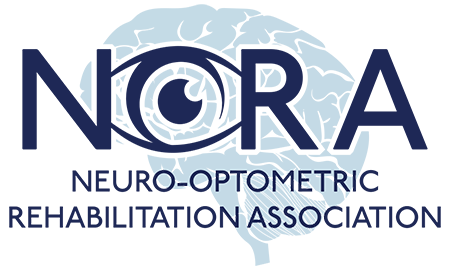 Vision plays a significant role in our ability to balance, orient ourselves in space, and process movement of things in our environment. Approximately twenty percent of the nerve fibers from the eye neural tracts (the neural fibers within the brain that connect to the eye) interact with the vestibular system, the parts of the inner ear and brain that help control balance and eye movements. The other key player in balance is the sensory information received through our joints and muscles.
Vision plays a significant role in our ability to balance, orient ourselves in space, and process movement of things in our environment. Approximately twenty percent of the nerve fibers from the eye neural tracts (the neural fibers within the brain that connect to the eye) interact with the vestibular system, the parts of the inner ear and brain that help control balance and eye movements. The other key player in balance is the sensory information received through our joints and muscles.
If the vestibular system is damaged by disease, aging, head injury, or sometimes for no apparent reason, persons with a vestibular disorder often experience extreme difficulty with balance and movement, as well as with their perception of space. As a result, functioning at work or school, or performing routine daily tasks in environments with excessive visual stimulation, such as a grocery store or shopping mall, may be difficult.
According to the Vestibular Disorders Association, more than 35% of US adults aged 40 years and older (69 million people) experience vestibular dysfunction at some point in their lives.
Common symptoms associated with vestibular disorders include:
- Vertigo and dizziness
- Imbalance and Spatial disorientation
- Vision disturbances
- Hearing changes
- Cognitive and/or psychological changes
Following are some common visual dysfunctions that may contribute to dizziness and balance problems:
- Aniseikonia - A visual condition where there is a significant difference in the perceived size of images, one eye to the other. This can cause disorientation, eyestrain, headache, and dizziness and balance disorders.
- Vertical Imbalance - Normally the eyes work in perfect synchrony. In this instance, one eye will aim higher than the other. In an effort to adjust to the vertical misalignment of the eyes, the person will frequently tilt their head to help align the eyes. This in turn can cause disorders in the vestibular fluid of the inner ear and lead to dizziness and balance disorders.
- Binocular Vision Dysfunction refers to the inability of the eyes to work together as a team. The eyes need to aim together and focus accurately at a point in space, and be able to quickly change gaze between closer and further objects how the visual system works as a team. Both components of near viewing(pointing and focusing) are controlled by neural connections in higher brain centers. Brain injury to these neural centers can lead to eye teaming and focusing issues resulting in double vision and/or blurred vision – setting the stage for dizziness and balance problems.
Treatment for Dizziness
Balance problems related to vision is first aimed at correcting (if possible) the underlying cause for the disorder. A combination of neuro-optometric rehabilitative therapy and balance or vestibular therapy can be an effective treatment for reducing or resolving these symptoms. Special prescription lenses prescribed by the Neuro-Optometric Rehabilitation Optometrist often offer considerable relief, as well.
